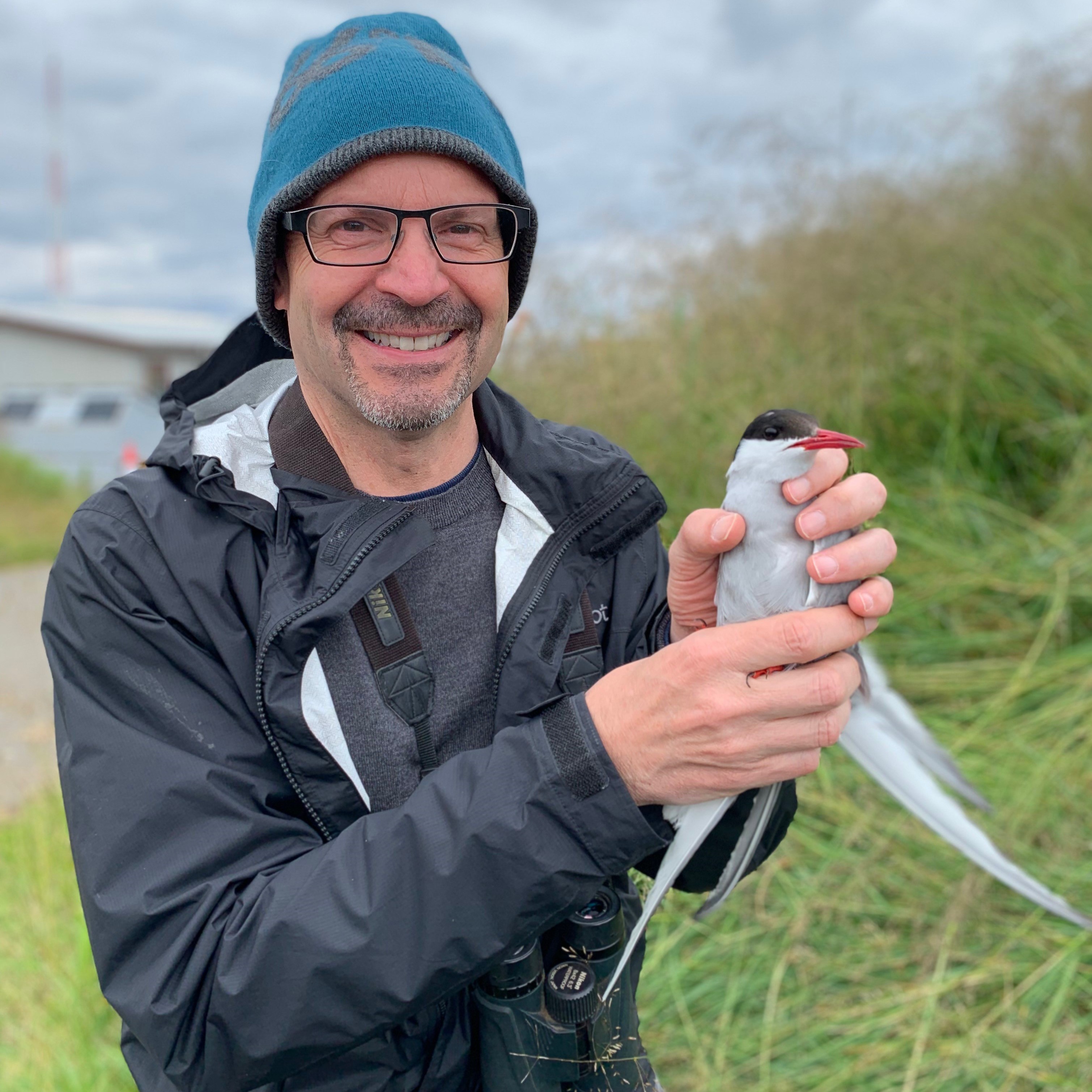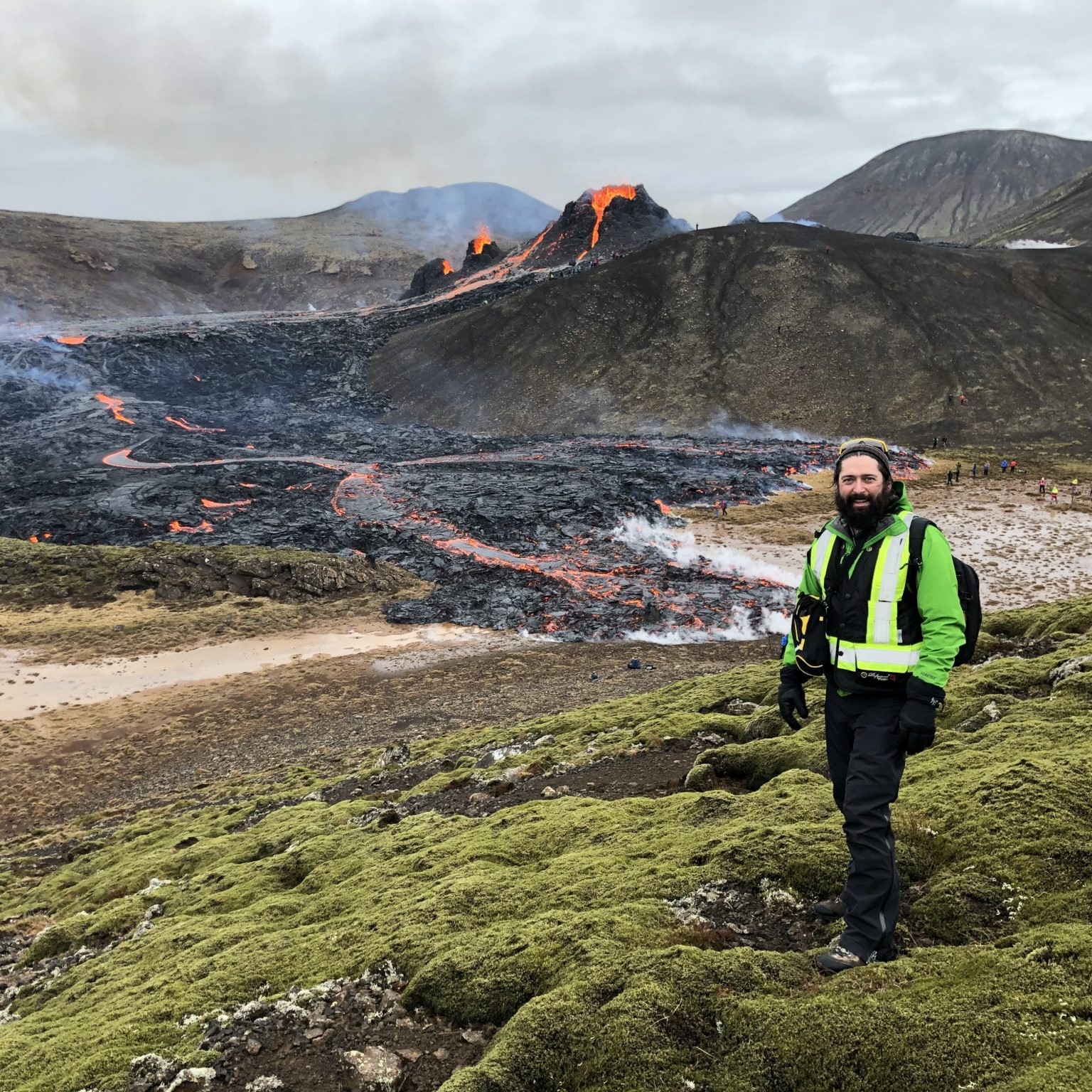Fulbright Iceland-National Science Foundation Arctic Research Grants
Iceland
Number of recipients
In addition to being a prestigious academic exchange program, the Fulbright Program is designed to expand and strengthen relationships between the people of the United States and citizens of other nations and to promote international understanding and cooperation. To support this mission, Fulbright Scholars may be asked to give public talks, mentor students, and otherwise engage with the host community, in addition to their primary activities.
Primarily a research grant, the recipient of this award will conduct Arctic-related research in Iceland. Projects must be well-defined and completed within the grant period. Scholars may engage in some limited teaching, mentoring, and development activity, as long as the main focus is on the research project.

Affilation with any university, research organization, or other appropriate partner in Iceland.
3 to 12 months
Grants should begin no earlier than mid-August 2025. Grants must be completed by mid-August 2026. Thus, 12 month grants must begin in mid-August. Only 3-month grants can start in May.
The grant is open to scholars in social and natural science fields as they relate to the Arctic and the people living there. This includes projects that have significance in the high north, even though the scholar's body of work may not focus solely on the Arctic.
All social sciences are eligible, including but not limited to anthropology, archaeology, economics, environmental humanities, geography, gender studies, governance, linguistics, political science, psychology, public/global health, science and technology studies, sociology, traditional knowledge and related subjects, socioecological systems, resilience, vulnerability, or other appropriate fields.
Eligible natural science fields include glaciology, geology, biology, sustainability science and other applicable fields.
Inter-disciplinary fields and projects are also encouraged.
Local host institutions are expected to assist the U.S. scholar to find suitable housing, settle in, provide social and networking opportunities and, in general, assist the scholar to ensure a productive and enjoyable Fulbright experience.
This grant is offered through a unique partnership between the National Science Foundation and Fulbright Iceland and provides an opportunity to build relations with both organizations.
The grant is a great opportunity for those who wish to conduct NSF-funded research abroad with strong support system provided by the Fulbright Commission.
All applicants must meet the Program eligibility requirements (click to review the requirements).
If applicants need assistance in finding appropriate affilliation, they are welcome to contact the Fulbright Commission.
You may be asked to participate in an interview as part of the in-country selection process.
University of Iceland | Research Centres at the University of Iceland
University of Akureyri
Bifröst University
Hólar University
The Agricultural University of Iceland
Reykjavik University
University Centre of the Westfjords
Stefansson Arctic Institute
The Centre for Arctic Policy Studies
Iceland Arctic Cooperation Network
$4,000 per month or $4,500 per month for grantees with a dependent or dependents, payable monthly. A dependent must stay in Iceland for at least 80% of the grant period to be eligible for a dependent supplement.
The grant is denominated in U.S. dollars but paid in Icelandic krona (ISK), according to the current exchange rate.
The grant is intended to cover living costs in Iceland.
No separate housing allowance provided. Grantees are responsible for arranging their own housing, but the host institution is expected to assist the grantee in finding housing and settling in. Some hosts institutions may in some instances be able to offer on-campus housing.
Travel allowance is $1,500 for the grantee, payable with the first grant payment.
Baggage allowance is $400, payable at the end of the grant period.
It is not necessary to provide a receipt for travel and baggage allowance.
All allowances are denominated in U.S. dollars but paid in ISK, according to the current exchange rate.
An additional research stipend $1,000 per month.
$500 travel allowance per dependent.
Children can attend primary and lower-secondary public schools at little or no cost, which is a great way to integrate into Icelandic society. The Commission can assist grantees in finding an appropriate local public school.
Dependents must accompany the grantee for at least 80% of the period abroad and a minimum of one semester in order to qualify for additional dependent benefits. Dependent benefits are not provided to Flex grantees.
Iceland is considered a high-cost country. Housing is comparable to smaller US cities, with housing most expensive in the capital area and less expensive outside the capital area. Food is relatively expensive compared to the US, but of high quality. Utilities are much less expensive than in the US. Many grantees live centrally and can walk to most destinations, but public transport in the form of buses is widely available.
The scholar will be invited to monthly grantee enrichment events provided by the Fulbright Commission during the academic year. Also, the scholar will be taken out to lunch at the beginning and end of the grant period for briefing and debriefing.
Special funding for disabled grantees
Funding is available for US Fulbright scholars to Iceland with a disability, be it a structural or functional impairment or activity/participation limitation, that entails additional costs that are not covered specifically through the Fulbright Program. Some funding may be available for a wide range of disabilities, including, for example, hearing, vision or movement impairment. The funding could, for example, be used to assist with specialized housing needs, in-country transport or specialized assistance. The extra funding amount will depend on need and will be decided by the Commission after consultation with the scholar. Funding is provided through the Bruce A. Fowler Mobility Fund.
Final grant amounts will be determined prior to the start of the academic year and are subject to the availability of funds. The United States Department of State and the Fulbright Commission in the host country reserve the right to alter, without notice, participating countries, number of awards and allowances.
Iceland
Iceland is a small Nordic country, an island republic in the North Atlantic, between the U.S. and the European mainland. Iceland is technologically advanced, English is widely spoken and Americans find Icelandic society and culture relatively easy to navigate.

There has been tremendous growth in academia in Iceland in recent years. On the one hand, the Fulbright Program aims, through teaching grants, to enhance and develop key disciplines at the university level and encourage newer and smaller departments. Being a small country, it is very important to the Icelandic higher education system to have access to Fulbright Scholars who have an important role to play in terms of broadening curricula and offering courses that would otherwise not be available, as well as bringing new perspectives and collaboration in research. Fulbright Scholars make a real difference and have a large role in shaping courses and curricula. The Fulbright Commission has increasingly focused also on bringing research scholars to Iceland. Opportunities for research are many and varied and can easily be conducted in English. U.S. scholars, both in natural and social sciences, have in the past years been very satisfied with the research infrastructure in Iceland. Research collaboration is also highly valued by Icelandic academics, who are eager for opportunities to host and collaborate with U.S. colleagues. Through the Commission's partnership with the National Science Foundation, the goal is to strengthen research in Iceland that has relevance for the Arctic and promote cooperation amongst scientists in a wide variety of Arctic relevant fields. Please note that many research topics can have relevance to the Arctic, even though they may not be strictly categorized as Arctic research, for example topics dealing with climate change, health, conservation, security broadly defined (for example, food or energy security), marine or coastal studies, anthropology and archaeology, just to name a few.
Fulbright Scholars are generally pleased with their stay in Iceland and find it very useful for their careers back home. For those grants where Fulbright Scholars are expected to teach and advise, the program is designed to ensure an opportunity for scholars to do their own research as well, if they so desire. Iceland provides very interesting research opportunities in many fields. As a small, highly technologically advanced country, Iceland is ideal for many types of research. English is widely spoken and much used in academia. Scholars can generally expect good access to people, institutions and information for research purposes.
Those who receive research grants will have opportunities to engage in some teaching and lecturing, if they so desire. Many find that this enhances their experience and is useful also for their research. Even if not teaching, scholars are required to present some talks while in Iceland.
Teaching awards are for three to five months in the fall or spring semester. The fall semester starts at mid-to-end of August and ends around mid-December. The spring semester is from early January through mid-May. Research awards are more flexible in terms of time frame and length, but must be completed within the allotted time frame.
Iceland has spectacular nature and offers scholars an opportunity for unique outdoor experiences, in addition to a vibrant cultural scene and an exciting local cuisine. There is a good public school system, and scholars with children have had positive experiences.
Since the Fulbright Program in Iceland is relatively small, the Commission is able to maintain close ties with scholars during their stay and provide a sense of community among Fulbright scholars and fellows. There are monthly grantee activities sponsored by the Commission, in addition to access to Fulbright alumni events and other social activities.
Please see below a grantee video profile of a young scholar who talks about her experiences as a researcher in Iceland:
Visit the Fulbright Iceland website for information about current and previous grantees.
Visit our Scholar Directory to view and search all Fulbright alumni. You can also learn more about Fulbright Alumni Ambassadors.

Contact the Fulbright Commission in Reykjavik, Iceland at: fulbright@fulbright.is.